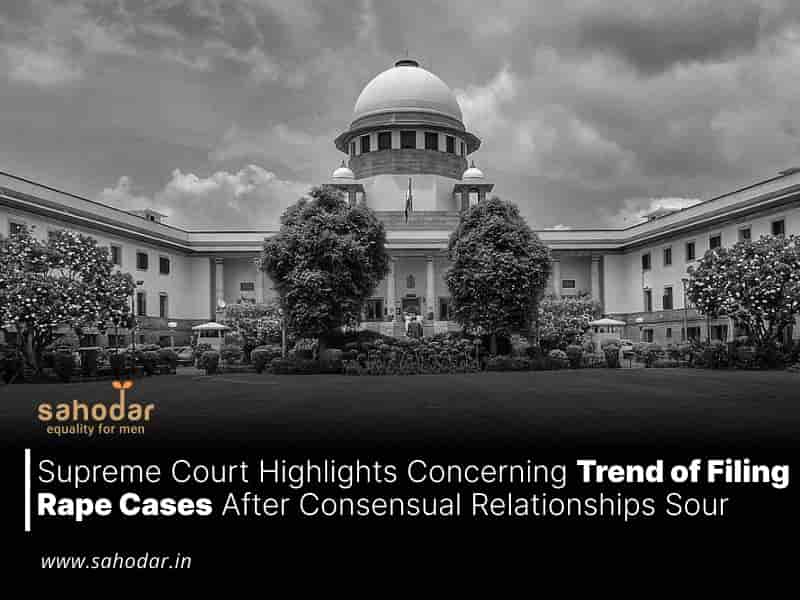A Bench of Justice BV Nagarathna and Justice N Kotiswar Singh flagged the “worrying trend” of attributing criminality to the male partner after a consensual sexual relationship turns sour later.
The Supreme Court on Tuesday ruled that a long-term physical relationship between couples, without objections or demands for marriage by the female partner, suggests a consensual relationship rather than one based on a false promise of marriage [Mahesh Damu Khare v. State of Maharashtra and Another].
A Bench comprising Justice BV Nagarathna and Justice N Kotiswar Singh also expressed concern over the “worrying trend” of assigning criminal liability to the male partner when a consensual sexual relationship later deteriorates.
“It is evident from the large number of cases decided by this Court dealing with similar matters as discussed above that there is a worrying trend that consensual relationships going on for prolonged period, upon turning sour, have been sought to be criminalised by invoking criminal jurisprudence,” the Court noted.
The Court emphasized the need to differentiate between consensual relationships and those rooted in false promises of marriage.
It observed that a female partner may choose to engage in a physical relationship with a man for reasons other than a promise of marriage, such as personal affection or mutual compatibility, without necessarily seeking formal marital ties.
The longer such a relationship lasts, the stronger the indication that it is consensual and not predicated on any promise of marriage.
“In a situation where physical relationship is maintained for a prolonged period knowingly by the woman, it cannot be said with certainty that the said physical relationship was purely because of the alleged promise made by the appellant to marry her. In our opinion, the longer the duration of the physical relationship between the partners without protest and insistence by the female partner for marriage would be indicative of a consensual relationship rather than a relationship based on false promise of marriage by the male partner and thus, based on misconception of fact,” the Court observed.
The Court further clarified that the prolonged continuation of a physical relationship without objection or protest from the female partner effectively removes any element of criminal culpability, rendering it neutral.
The case dates back to 2012 when the accused, a social worker active since 1985, assisted the complainant in resolving the kidnapping of her elder daughter.
Subsequently, the complainant frequently visited the accused’s office to assist with his work, while the accused also provided her with financial support.
According to the accused, he began distancing himself when the complainant’s requests for financial assistance became more frequent.
In response, the complainant allegedly started threatening him and his family members. Despite the accused and his family filing complaints against her, she eventually filed a case accusing him of rape, cheating, and criminal intimidation under Sections 376, 420, and 506 of the Indian Penal Code (IPC).
The complainant claimed that she first met the accused in 2008 while searching for a job, during which time the accused also needed assistance in caring for his ailing wife.
The complainant alleged that the accused repeatedly engaged in non-consensual sexual intercourse with her under the false pretense of marrying her.
She claimed that the accused, who was already married to two women, assured her he would marry her, citing the ill health of both his wives.
According to her, this continued until 2017, after which the accused began distancing himself and ultimately ended the relationship, telling her to do as she pleased and to disregard any promise of marriage.
The sessions court granted the accused anticipatory bail. However, the complainant subsequently filed another FIR accusing him of molesting her daughter, in which he was also granted protection.
The accused then approached the Bombay High Court seeking to quash both cases filed against him.
The High Court rejected his plea, observing that there was no prima facie evidence to suggest his relationship with the complainant was consensual.
This prompted the accused to appeal the decision before the Supreme Court.
The Supreme Court observed that the fact that the two remained unmarried from 2008 to 2017, without any protest or objection from the complainant, suggested a lack of intent on the accused’s part to marry her.
“Making an allegation of non-fulfilment of promise to marry without undue delay by the promissee would, on the other hand, be an indicator of a false promise being made from the initial stage. In the present case, what is not in dispute is that the physical relationship between the appellant and the complainant continued for a long period of about a decade and as such it is difficult to infer that the appellant had made a false promise since the initial stage and continued to make false promises to marry her on the basis of which she also continued to have physical relationship with him,” the Court observed.
The Court opined that the relationship between the two resembled an extra-marital affair during this period, with no insistence from the complainant on marriage.
“It appears that discontinuance of financial support to the complainant, rather than the alleged resiling from the promise to marry by the appellant appears to be the triggering point for making the allegation by the complainant after a long consensual relationship for about nine years,” the Court observed while allowing quashing of case against the accused.

